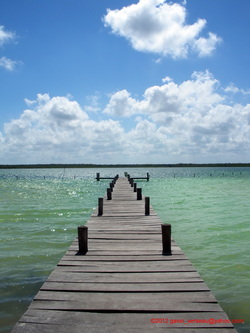Points of Interest

I've been online and interacting with computers since 1994. I've been there and done that so to speak long before most. Perhaps I'm a little jaded about technology and the onslaught of information it brings at the moment.
Rather than provide a string of links that feels compulsory, I think for now the best expression of my longstanding interests are in the following definition I found on Wikipedia. It's concise and to the point yet encompasses so much.
I even have a degree in the Humanities.
Big money, I tell ya ;)
"The 1980 United States Rockefeller Commission on the Humanities described the humanities in its report, The Humanities in American Life:
Through the humanities we reflect on the fundamental question: What does it mean to be human? The humanities offer clues but never a complete answer. They reveal how people have tried to make moral, spiritual, and intellectual sense of a world in which irrationality, despair, loneliness, and death are as conspicuous as birth, friendship, hope, and reason."
OR
"The humanities are academic disciplines that study the human condition, using methods that are primarily analytical, critical, or speculative, as distinguished from the mainly empirical approaches of the natural sciences.
The humanities include ancient and modern languages, literature, philosophy, religion, and visual and performing arts such as music and theatre. The humanities that are also regarded as social sciences include
history, anthropology, area studies, communication studies, cultural studies, law, economics and linguistics. Scholars working in the humanities are sometimes described as "humanists". However, that term also describes the philosophical position of humanism, which some "antihumanist" scholars in the humanities reject. Some secondary schools offer humanities classes, usually consisting of English literature, global studies, and art.
Human disciplines like history, cultural anthropology and psychoanalysis study subject matters to which the experimental method does not apply, and they have access instead to the comparative method and comparative research."
Rather than provide a string of links that feels compulsory, I think for now the best expression of my longstanding interests are in the following definition I found on Wikipedia. It's concise and to the point yet encompasses so much.
I even have a degree in the Humanities.
Big money, I tell ya ;)
"The 1980 United States Rockefeller Commission on the Humanities described the humanities in its report, The Humanities in American Life:
Through the humanities we reflect on the fundamental question: What does it mean to be human? The humanities offer clues but never a complete answer. They reveal how people have tried to make moral, spiritual, and intellectual sense of a world in which irrationality, despair, loneliness, and death are as conspicuous as birth, friendship, hope, and reason."
OR
"The humanities are academic disciplines that study the human condition, using methods that are primarily analytical, critical, or speculative, as distinguished from the mainly empirical approaches of the natural sciences.
The humanities include ancient and modern languages, literature, philosophy, religion, and visual and performing arts such as music and theatre. The humanities that are also regarded as social sciences include
history, anthropology, area studies, communication studies, cultural studies, law, economics and linguistics. Scholars working in the humanities are sometimes described as "humanists". However, that term also describes the philosophical position of humanism, which some "antihumanist" scholars in the humanities reject. Some secondary schools offer humanities classes, usually consisting of English literature, global studies, and art.
Human disciplines like history, cultural anthropology and psychoanalysis study subject matters to which the experimental method does not apply, and they have access instead to the comparative method and comparative research."
